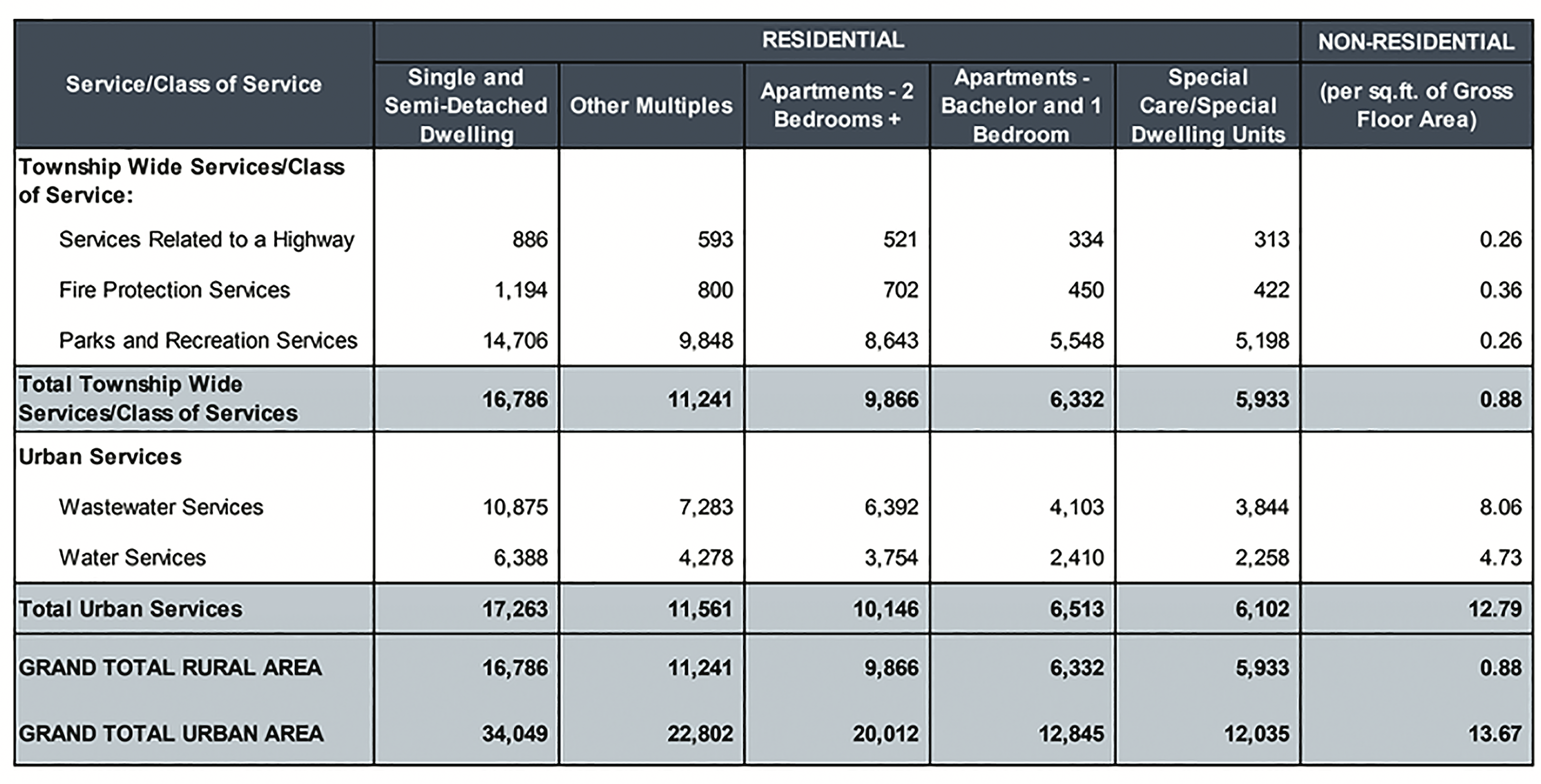BRUCEDALE – It appears development charges for urban residential buildings in Rockwood are set to decrease, while almost all other charges throughout Guelph/Eramosa will rise.
Guelph/Eramosa council had a public meeting on the proposed changes on April 3.
Development charges are fees developers pay to municipalities to cover infrastructure and services like roads, fire protection, parks and recreation, and water and wastewater.
The purpose of the public meeting was to “give the public an opportunity to ask questions, provide comments and make representations on the proposed development charge background study and proposed bylaw,” Mayor Chris White said.
However, no questions or comments were voiced.
Council will not be making any decisions on changes to development charges until May 8.
Watson and Associates Economists Ltd. representative Gary Scandlan presented a background study during the meeting.
The changes
For an urban detached or semi-detached residential unit in Rockwood, the development charge is set to drop from $44,000 to $34,000.
For a one bedroom apartment, charges would be reduced from about $20,000 to $13,000. Larger urban apartments and townhouses fall between these numbers, with similar reductions.
The charge for non-residential developments in Rockwood will increase from $11.77 to $13.67 per square foot.
For rural developments, the charge for a single detached unit will increase from $15,000 to about $17,000.
Charges for a rural one bedroom apartment would decrease slightly from $6,871 to $6,332.
Development charges for rural apartments with two or more bedrooms would increase from $8,080 per apartment to $9,866.
For non-residential rural developments, charges are set to increase from 30 cents to 88 cents per square foot.
More Homes Built Faster Act (Bill 23)
Some of the changes are a result of Bill 23, the More Homes Built Faster Act, which the provincial government passed on Nov. 28.
The bill reduces the number of services covered by development charges and introduces a range of new mandatory exemptions.
These exemptions include new buildings for governments and school boards; industrial building expansions of up to 50 per cent; additions of up to two apartments to existing or new houses; and non-profit, affordable and attainable housing.
Affordable housing is defined as rental and owned units below 80% of the average market rent or purchase price in that municipality. These averages will be published by the Ontario Ministry of Municipal Affairs and Housing.
The province has not yet released information regarding the regulations for what makes a unit attainable.
Scandlan noted these “exemptions will take away revenue from the municipality, making it a little more difficult to invest in the required infrastructure.”
There will also be discounts to development charges for new rental housing developments. For units with three or more bedrooms the discount will be 25%; for two bedrooms it will be 20% and for studios and one bedroom apartments it will be 15%.
After the bylaw changing development charges is passed, it will be phased in gradually over a five-year period. In the first year 80% of the fees will be charged. This will increase by 5% each year, reaching 100% in the fifth year.
Another change is regarding the township’s annual reporting on reserve funds.
Moving forward municipalities must disclose how money for roads and water services are allocated.
Growth forecast summary
Watson and Associates predicts the population of Guelph/Eramosa will increase by 608 people and 346 additional residential units by 2033.
This includes an estimated growth of 307 people and 198 additional residential units in Rockwood.
Comparison with other areas
With the proposed changes, Guelph/Eramosa’s development charges for urban residential and nonresidential units will remain higher than those in Centre Wellington, Mapleton, Minto, Wellington North and Puslinch – but lower than those in Erin and Guelph.
Rural residential development charges will remain higher than those in Minto and Puslinch, but lower than the rest of Wellington County.
Rural non-residential development charges will remain lower than anywhere else in Wellington County.
Guelph/Eramosa residents can submit written feedback on the development charge changes – to clerks@get.on.ca – until April 17.
“Council will consider all matters placed before it prior to reaching a decision,” White said.



